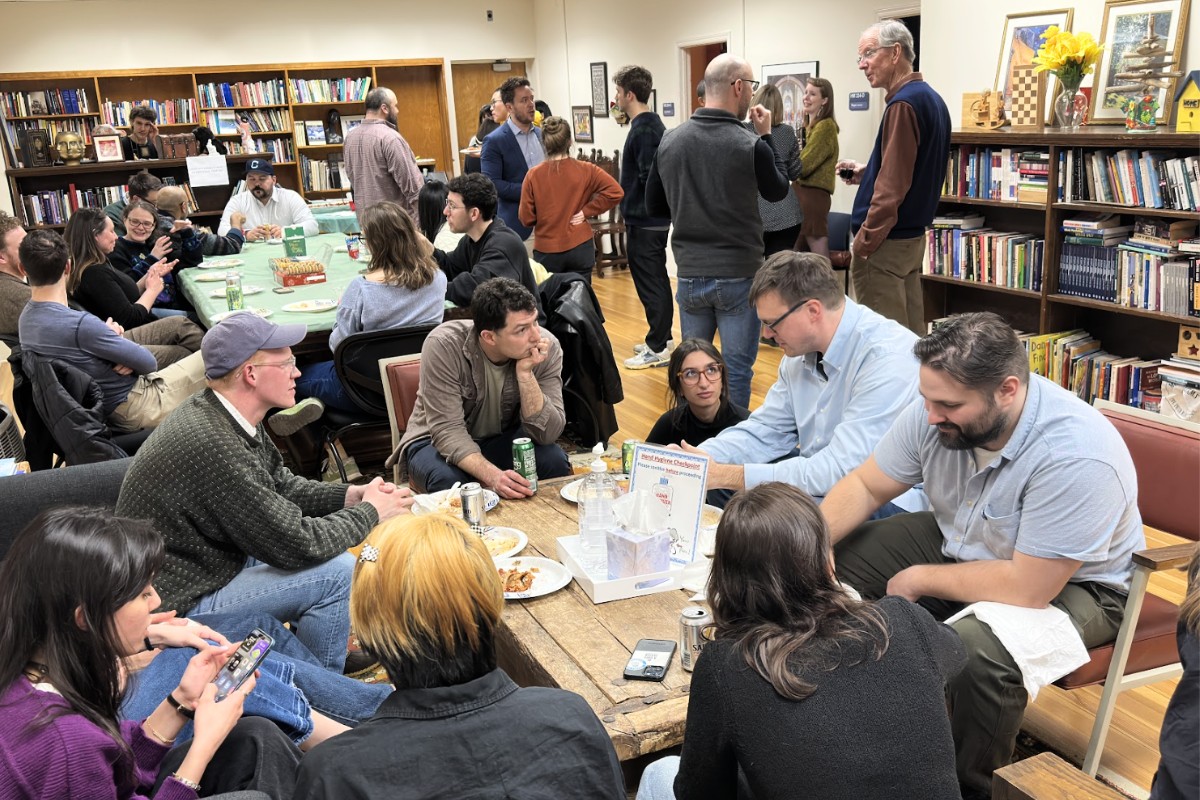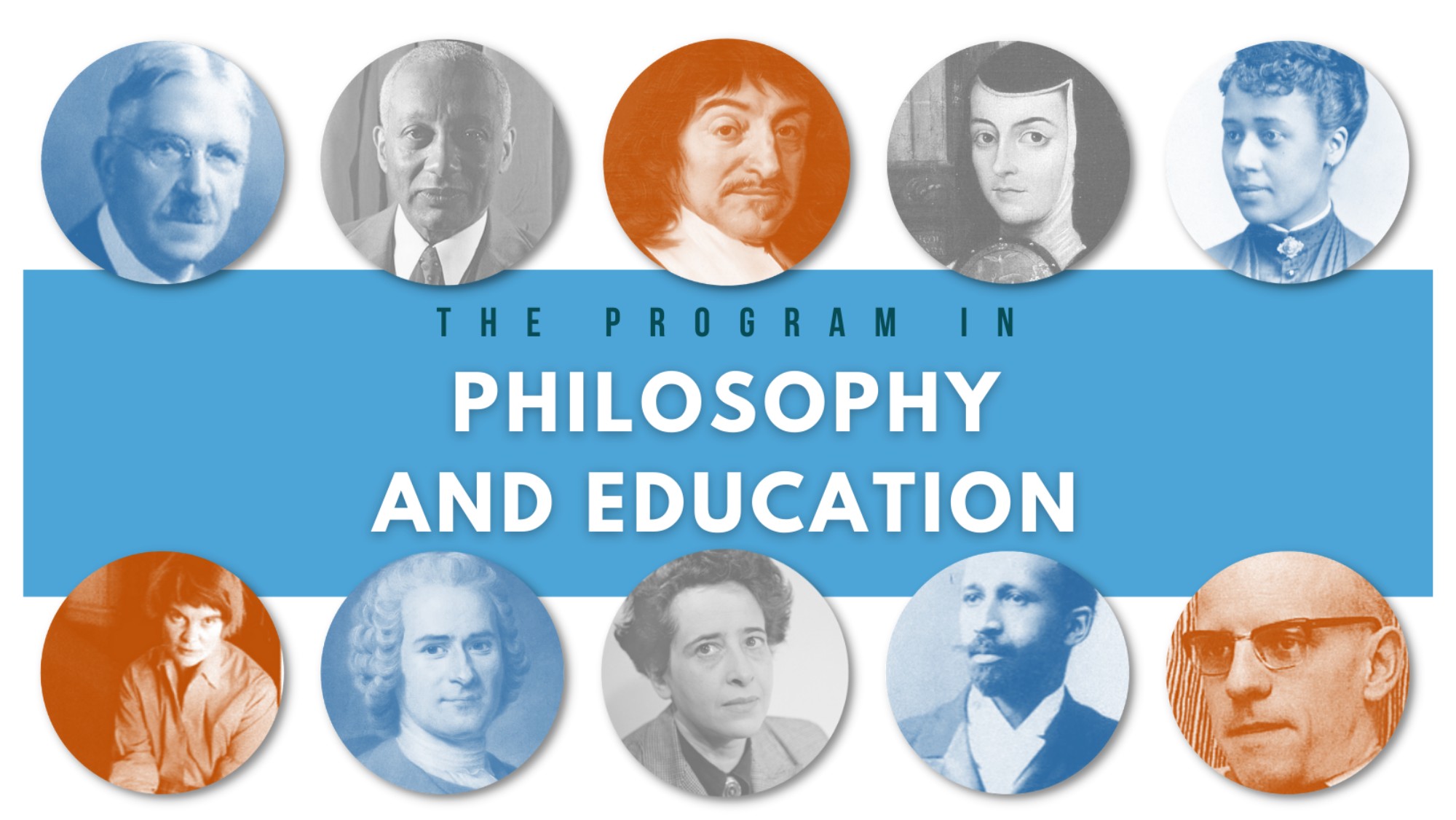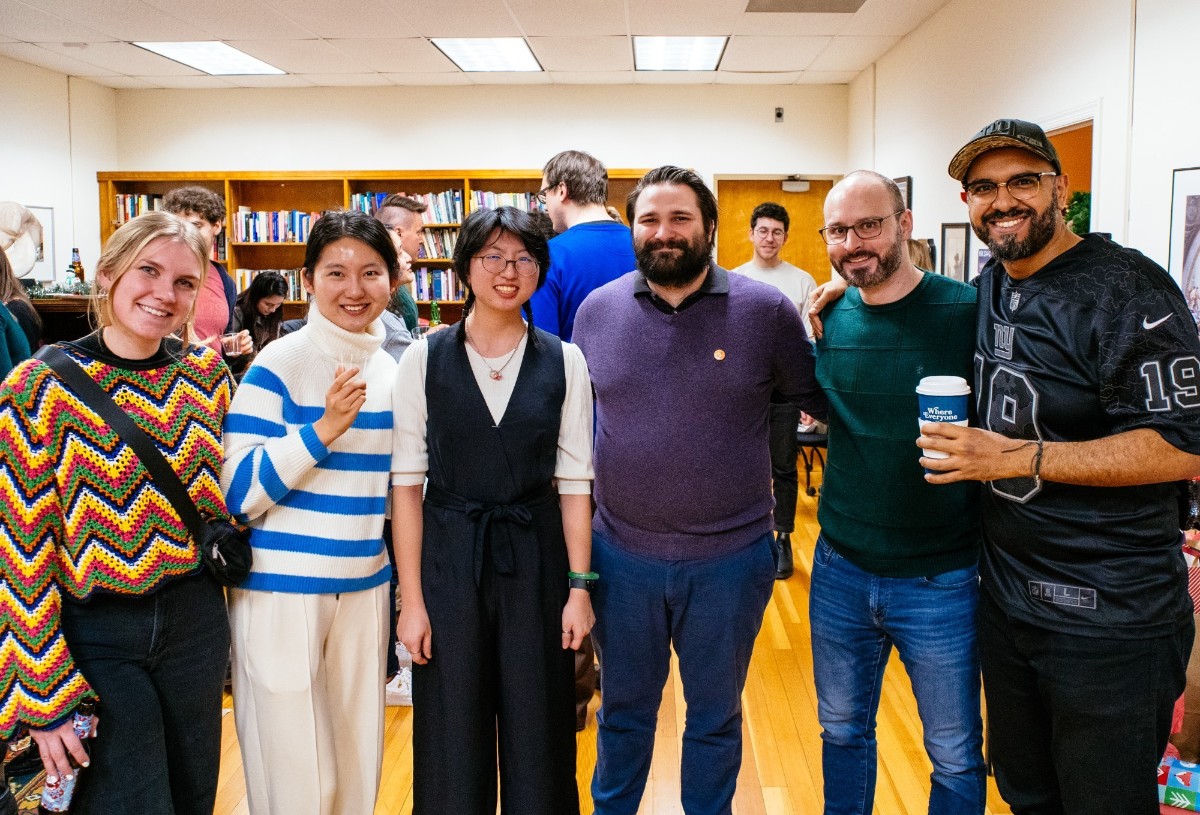
About
The Philosophy and Education program centers around two closely related convictions:
- that philosophical reflection and inquiry are indispensable for generating sound educational practice, and
- that educational practice is indispensable for bringing philosophical reflection and inquiry to life.
The program seeks to prepare scholars and practitioners who will bring to the world of education a dynamic grasp of how vital is the conjunction "and" that links the enduring concepts philosophy and education. The program builds on a rich heritage of philosophy and education at Teachers College initiated by John Dewey, William Heard Kilpatrick, and others.
The program provides students a challenging opportunity to deepen and widen their humanistic, philosophical thinking about education. Course work centers around the close reading of primary texts in the history of ideas, with a focus on how these texts illuminate the meanings and significance of educational practice.
In their program work, students engage questions such as these:
- What is "teaching"? How does teaching differ from other social practices such as medicine, law, social work, and nursing? How does teaching differ from parenting and friendship? And what, or who, is a "teacher"? Should teachers be certain kinds of persons, with certain kinds of moral and intellectual sensibilities? In light of such questions, how should educators think about teacher education—about the best ways to prepare people to become teachers? What criteria should they use to assess whether particular individuals should be allowed to have the responsibility of educating other peoples' children?
- What is worth knowing and studying? Posed differently, what is a "curriculum"? What is a "course of study"? Is the latter a body of facts to be memorized? A set of questions to be posed and contemplated? A conversation about how we perceive and understand the world? What are the grounds, rationales, and philosophies of life educators might appeal to in their response to such questions? And why might it be important to address such questions before teaching students, whether in schools, universities, or other sites?
- What is an educational "policy"? Is it a blueprint? A prescription? A suggestion? A hope? A political trade-off? All or none of these? Should educational policy be guided by particular political, social, cultural, or other values, and if so, which ones? And how do we make sense of, and criticize, the ways people conceive what is good, and then translate their conceptions into concrete policy? Cast in other terms, how do educational policy and practice intersect with social, economic, cultural, and political concerns, contexts, and forces? How do policy and practice reflect, or call into question, understandings and conceptions of play and work, technology, democracy, the environment, gender, race, class, ethnicity, peace and war?
- What do we mean by "learning" and "human development"? Are these processes and events cumulative, or even progressive? Do human beings typically become better able, or less able, to dwell in the world? Do human beings construct meaning? Make meaning? Discover meaning? Absorb meaning? And what are human beings—what is a self, what is a person? What kind of response should educators have to these questions to guide them in their work?
- What is an "educative experience"? Why are people moved, enlightened, enriched, and transformed by some experiences but not by others? How can perspectives on art and artistic endeavor, on the relation between the mind, the body, and the heart, and on religion and the spiritual life, help us in grasping the nature and contours of meaningful experience?
These questions are a sampling of those that the faculty and students in the program pursue. The program is characterized by a strong commitment to faculty-student and student-student interaction. It seeks to sustain a genuine intellectual agora wherein faculty and students can flourish as scholars of philosophy and education.

